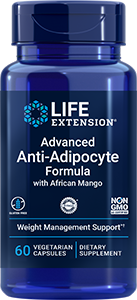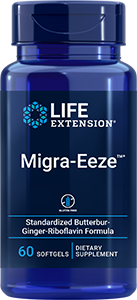- Science & Research
- Science News
- Newsletter
- 2011
- September 27

Newsletter
Newsletter
Poor Vitamin B12 Status Impacts Brain Volume And Function
Poor vitamin B12 status impacts brain volume and function
Tuesday, September 27, 2011. The September 27, 2011 issue of the journal Neurology® reveals an association between unfavorable serum markers of vitamin B12 status and reduced brain volume and cognitive function. The current investigation was limited to 121 participants in the Chicago Health and Aging Project who had magnetic resonance imaging (MRI) scans of their brains performed several years after undergoing tests of cognitive function. The tests included seven measures of episodic memory, two measures of visuospatial ability or perceptual organization, two measures of perceptual speed, two measures of semantic memory, and three measures of working memory. Stored serum samples were analyzed for vitamin B12 and the vitamin B12 markers methylmalonic acid (MMA), 2-methylcitric acid, homocysteine and cystathionine (generated from homocysteine). While serum vitamin B12 itself was not associated with cognitive function or measures of brain volume, other indicators of vitamin B12 insufficiency were associated with poor global cognitive test scores and a decrease in brain volume revealed by MRI findings compared to those with better B12 status. When individual cognitive domains were analyzed, decreased episodic memory and perceptual speed were associated with an increase in methylmalonic acid (which is elevated in 90 to 98 percent of men and women with a vitamin B12 deficiency), and poorer episodic and semantic memory were correlated with greater 2-methylcitric acid and cystathionine levels. Higher levels of the vitamin B12 markers, but not serum vitamin B12, were associated with decreased total brain volume, and higher homocysteine levels were associated with greater white matter hyperintensity volume, which is associated with an elevated risk of cerebrovascular events. Concerning the lack of an association between serum vitamin B12 itself (as opposed to B12 markers) and cognitive function or brain volume, lead author Christine C. Tangney, PhD, of Rush University Medical Center remarked that low levels of vitamin B12 can be challenging to detect in older individuals when only serum vitamin B12 is measured. "Marginal vitamin B12 status in older age is frequently missed by measurement of serum vitamin B12 levels alone," Dr Tangney and her colleagues write. "Our findings suggest that MMA, the specific marker of B12 deficiency, may affect cognition by reducing total brain volume whereas the effect of homocysteine on cognition may be mediated through increased white matter hyperintensity volume and cerebral infarcts." "Our findings definitely deserve further examination," Dr Tangney said. "It's too early to say whether increasing vitamin B12 levels in older people through diet or supplements could prevent these problems, but it is an interesting question to explore. Findings from a British trial with B vitamin supplementation are also supportive of these outcomes." |
||||||||||||||||
 |
||||||||||||||||
|
||||||||||||||||
|
||||||||||||||||
 |
||||||||||||||||
|
||||||||||||||||
 |
||||||||||||||||
The latest news on aging, nutrition, and vitamins
Lab
Testing
How Life Extension lab testing works









